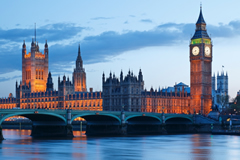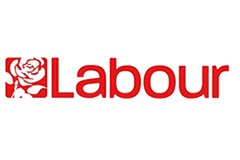With the next General Election less than 100 days away, it seems highly likely that we are heading for another ‘hung parliament’ and coalition government. The big question is, how will that coalition be made up – and what impact will the so-called ‘fringe’ parties have on the result?
It seems to me that all manner of multi-party agreements could come into play post-election. Labour could sign up to a deal with the Greens and the SNP; the Tories could go with the Unionists of Ireland, the Lib Dems and maybe even UKIP; or we could end up with the largest party, probably the Conservatives, going it alone for a few months before calling another General Election to try and get a conclusive result.
The uncertainty surrounding May’s poll is due to several things, among them the less than inspirational leadership we are being offered by the leaders of the three mainstream parties; but largely it is because of the surge in support the minor political forces have enjoyed in recent months.
It sounds somewhat patronising, and perhaps even a little politically snobbish to say this, but those who are seriously thinking of putting their ‘X’ in the box marked Green, UKIP, Independent or, to a lesser extent, SNP, are clearly not too concerned about the detail and range of policies that are required for government.
These fringe parties are basically single issue campaigners who have decided that forming a ‘political party’ gives them more legitimacy and a bigger voice than by simply sticking to what they actually are – protest groups.
The Greens are anti-nuclear; anti-fracking and, apparently, anti-enterprise. They have no clue about economic policy, defence or indeed a whole manner of things that should concentrate the minds of any political party standing for election. Do those who are planning to vote Green really appreciate that they want to abolish the army in favour of ‘civil defence’ volunteers? Or that they wish to kick the Queen out of Buckingham Palace and stick her and the Corgi’s in a council house?
Outside of immigration and their anti-EU agenda, have UKIP got any policies that bear scrutiny? Certainly on both the NHS and economic policy they have been found desperately short of ideas and credibility.
And, outside of using the proceeds of North Sea oil to prop up some kind of Scottish Utopia, how are the SNP proposing to govern their nation if they do ever get full blown UDI? With oil prices now plummeting, you can only see their mismanagement of public services getting worse if they were to be given the powers they crave.
Single issue pressure groups should be just that – or we end up in the dangerous position that we now find ourselves, with a turned off electorate choosing to back parties with one idea rather than a Manifesto to govern.







